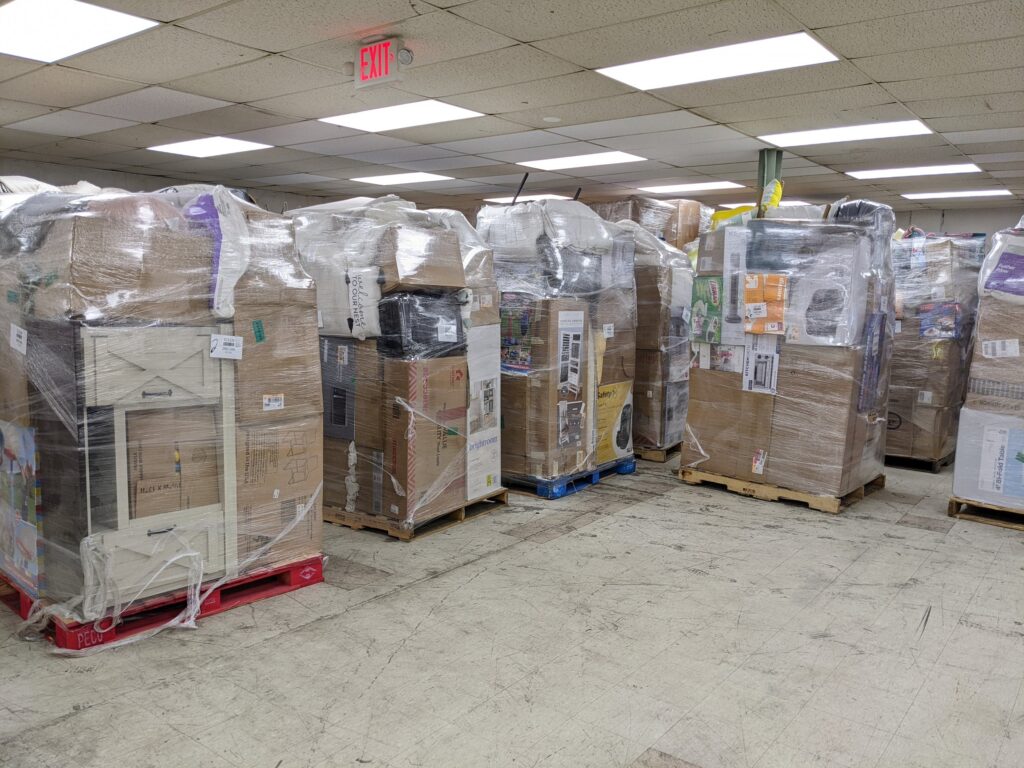Want To Learn How To Start A Liquidation Business? Let’s Get You Started.
The world of business is vast and varied, and one of the lesser-known yet profitable ventures is the liquidation business. Liquidation, in essence, involves buying unsold, returned, or overstocked merchandise from retailers or manufacturers at a fraction of the cost and then selling them at a profit. PNW Transport has had the privilege of partnering with some of the leading liquidation platforms by facilitating the shipping and delivery of liquidated goods. If you’re considering diving into this industry, here’s a comprehensive guide on how to start a liquidation business, what to expect, and the tools to ensure success.

1. Understand the Basics:
- Liquidation vs. Wholesale: Unlike wholesale where you purchase new products directly from manufacturers, liquidation involves buying products that didn’t sell, were returned, or are overstocked.
- Sources: Liquidation merchandise can be sourced from big retailers, manufacturers, or liquidation-specific websites.
- Types of Goods: From electronics to clothing, almost any product can be found in liquidation. However, the condition may vary – new, returned, refurbished, or even slightly damaged.
2. Things You Should Know:
- Research is Key: Before diving in, research the market. Understand what products are in demand, which seasons see more liquidations, and which retailers often have overstock.
- Quality Varies: Not all liquidation goods are in pristine condition. Some might be returns, while others might be shelf pulls. Always inspect the goods before purchasing.
- Legalities Matter: Ensure you have the necessary business licenses and permits. Some states might require a reseller’s license.
3. What to Expect:
- Fluctuating Inventory: Unlike traditional retail, you can’t always predict what will be available. Be prepared for an ever-changing inventory.
- Initial Capital: While you’re buying at reduced prices, you still need a significant amount to purchase bulk lots.
- Competition: As with any business, there’s competition. Other liquidators might be eyeing the same lots as you, so always be on your toes.

4. Tools for Success:
- Liquidation Websites: Platforms like Liquidation.com or B-Stock offer a plethora of lots to bid on or buy outright.
- Inventory Management Software: With fluctuating inventory, a robust management system is crucial. Tools like Sortly or inFlow can help.
- E-commerce Platforms: Consider selling on platforms like eBay, Amazon, or even your website. Tools like Shopify or WooCommerce can help set up an online store.
- Networking: Join forums or groups related to liquidation. This can provide insights, partnership opportunities, and even leads on good lots.
5. Steps to Start:
- Business Plan: Outline your strategy, target market, financial projections, and operational plan.
- Secure Funding: Whether it’s your savings, a business loan, or investors, ensure you have enough to start and run the business for at least a few months.
- Find Suppliers: Establish relationships with retailers, manufacturers, or use liquidation websites.
- Set Up Shop: Decide if you want a physical store, an online store, or both. Ensure it’s set up before you start buying.
- Marketing: Use social media, PPC advertising, and even traditional advertising to get the word out.
6. Tips for Success:
- Start Small: Don’t invest all your capital in one go. Start small, learn the ropes, and then expand.
- Diversify: Don’t put all your eggs in one basket. Diversify the types of products you buy.
- Customer Service: Just because you’re selling liquidated goods doesn’t mean customer service isn’t essential. Ensure your customers are satisfied.
- Stay Updated: The market changes, new products come in, and trends shift. Always stay updated.
Conclusion:
Starting a liquidation business can be a lucrative venture if done right. It requires diligence, research, and a keen eye for good deals. With the right tools and mindset, you can carve a niche for yourself in this industry. Remember, like any business, there will be challenges, but with perseverance and the right strategies, success is attainable.
